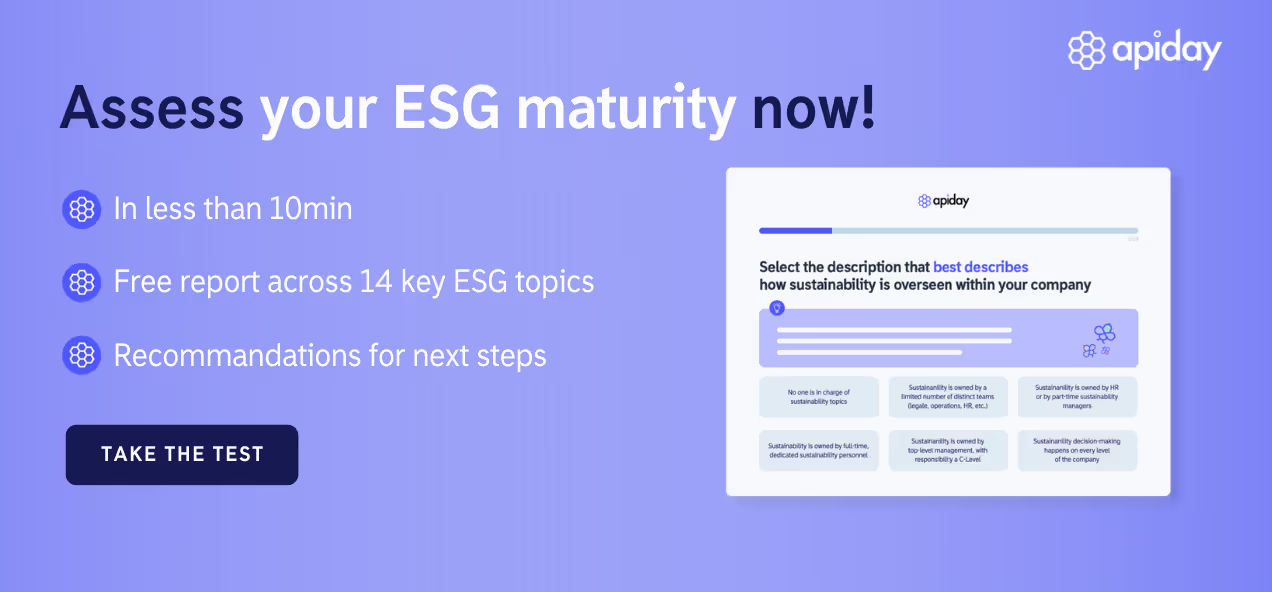5 Sustainability trends to watch out in 2023

When it comes to sustainability, the future looks bright!
A lot has changed since the beginning of this decade. The world is more aware of climate change than ever before and people are increasingly concerned about their impact on the environment and society.
Companies and funds are responding by making sustainability a priority, and they're realising that it's not just good for their ESG reports—it's good for business too.
In 2022, companies all over the globe have taken a step forward to address the most pressing sustainable challenges. But what will sustainability look like in 2023?
What will be the biggest challenges for organisations who want to keep up with this changing landscape?
In this article, we'll take a look at some of the most important sustainability forecasts for the year 2023.
Digitalisation will revolutionise the way companies conduct sustainability reporting, by making it easier, faster and more effective.
The usage of digital reporting tools will change the way companies conduct sustainability reporting, shifting the move from Excel sheets to smart, dedicated software.
The process will be streamlined and efficient, allowing companies to focus on improving their core business activities instead of spending time writing reports.
This will help organisations better measure their results and make smarter decisions about how to improve their sustainability practices.
A 2022 report by ABB found that 96% of decision-makers believe that digitalisation is “essential to sustainability” and between 2020-2023, $7 trillion is projected as the global spend on digital transformation projects.
ESG investment products will have stricter rules.
The U.S. Securities and Exchange Commission is proposing stricter rules with a common benchmark for how sustainable investment products are labeled, marketed and reported.
In Europe, due to uncertainty around SFDR, hundreds of funds may downgrade their Article 9 designation as some asset managers have taken a lax approach toward Article 9 requirements.
A recent Morningstar study found that 43% of the funds it analysed were targeting a sustainable-asset threshold of less than 50%.
As regulations get stricter, it will become increasingly difficult for organisations to get away with greenwashing.
Customers are becoming more savvy about what corporations are doing behind-the-scenes, and investors too! They want to see organisations who are transparent about their practices and willing to be held accountable when they misstep or make mistakes.
This year, many corporations have been held accountable for their greenwashing: a German consumer group filed a lawsuit against Deutsche Bank's asset management unit over alleged misrepresentations of a fund's green credentials in marketing materials, and the Securities and Exchange Commission ordered Goldman Sachs to pay a $4 million penalty for ESG fund claims.
JPMorgan Chase & Co. analyst Jean-Xavier Hecker predicts that enforcement of these claims will be the hardest in the climate change area.

The focus on natural capital will replace focus on climate change
Over the past years, companies and governments have been focusing on tackling climate change, one of the most pressing issues the world is facing, sometimes to the detriment of an issue considered even more important by some: the loss of biodiversity.
Based on the outcomes and recommendations of COP15 and the Taskforce on Nature-related Financial Disclosures (TNFD), 2023 will be devoted to developing even more tools, standards and international initiatives to enable companies to address the multifaceted challenges emanating from climate change.
SMEs will be at the heart of action
Sustainability used to be the preserve of large companies. With growing customer needs and an evolving regulatory landscape, Small and medium enterprises (SMEs) have a pivotal role to play to drive sustainable change within supply chains. 2023 is the year to get prepared for upcoming regulations and take a proactive approach to sustainability concerns.
And as of 2023 and beyond, we are here to help you reach your sustainability goals!
At Apiday, we've developed a unique set of tools and services to help you manage and automate your sustainability reporting.
Our online platform allows you to produce high-quality sustainability reports in record time!
All you need to do is upload the documents, we pre-fill your questionnaire and do the rest: building beautiful charts, dashboards, and actionable data from all your systems in one place.
So you can spot opportunities, focus on what matters the most and sky-rocket your sustainability performance!
Frequently Asked Question
In 2023, the focus will shift towards digitalisation, stricter regulations to prevent greenwashing, prioritising natural capital over climate change, and giving small and medium enterprises a larger role in the industry. These will be the key sustainability trends of the year.
Sustainability is not just a trend, but it gained popularity due to growing global awareness of environmental and social issues. This was compounded by increasing public pressure for corporations and governments to adopt more responsible practices.
In 2023, stricter regulations will be a major sustainability trend. Both in Europe and the US, regulations for ESG investment products and organisations will be tightened to prevent greenwashing and impact-washing. Expect to see more stringent rules in place.
Sources
Related articles

What is CSR (Corporate social responsibility) and how to adopt it?
CSR is an abbreviation for Corporate Social Responsibility. CSR strategies have become common in today’s corporate world as more and more companies realise that their business performance and its societal impacts are intricately connected.




















